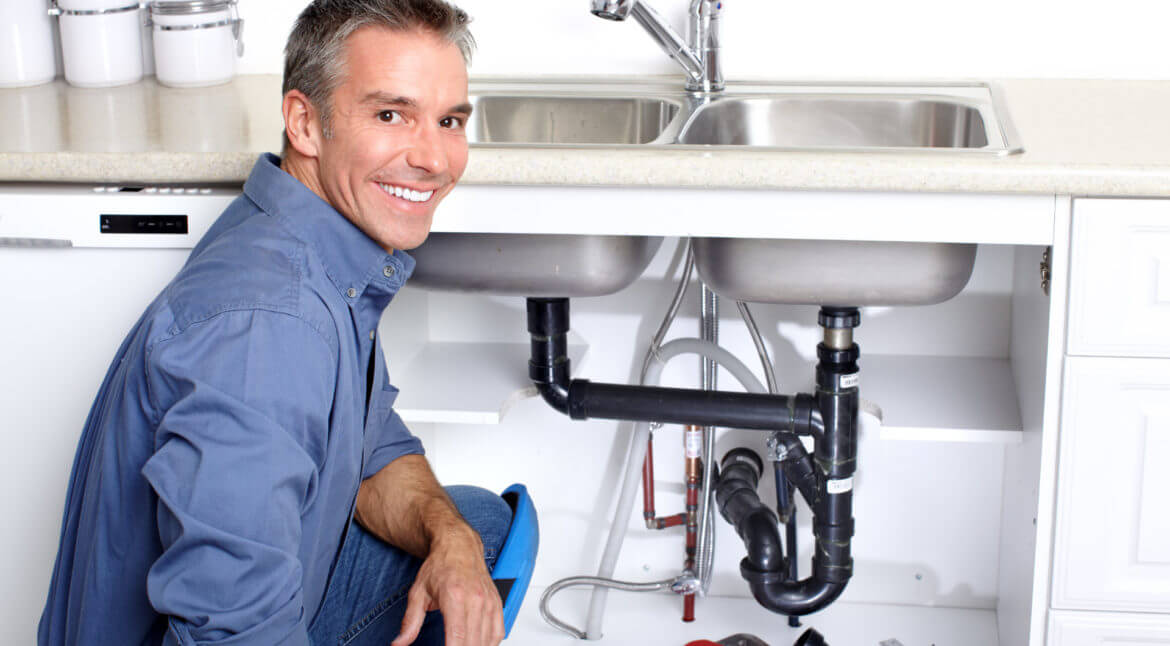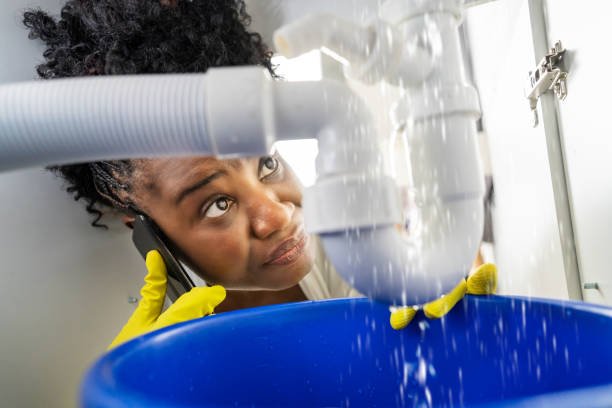Rapid Solutions for Urgent Plumbing Issues: What to Do Until A Plumber Arrives
Rapid Solutions for Urgent Plumbing Issues: What to Do Until A Plumber Arrives
Blog Article
The writer is making a few good pointers about Plumbing Emergencies: Tips on What To Do Before overall in this great article down the page.

Plumbing emergencies can strike at any time, causing stress and anxiety and possible damages to your home. Whether it's a ruptured pipeline, a clogged up drainpipe, or a leaky faucet, knowing just how to take care of the scenario till an expert plumbing professional shows up can save you from additional problems. This article provides important emergency situation pipes pointers to assist you alleviate damage and restore control during a pipes situation.
Switch off the Water System
The primary step in any plumbing emergency is to shut down the water. For local problems, such as a leaking faucet or commode, switch off the shutoff near the fixture. In the case of a significant leakage or ruptured pipe, locate your home's major water shut-off shutoff and turn it off right away. Recognizing the area of these shutoffs beforehand can conserve useful time during an emergency.
Address Little Leaks with Momentary Repairs
Little leaks can quickly become significant issues if left unattended. Use these temporary solutions till expert assistance arrives:
While these solutions aren't long-term, they can help minimize water loss and damage.
Unclog Drains Safely
A stopped up drain can be a frustrating and messy concern. Below's how to tackle it:
If these techniques do not function, stay clear of utilizing excessive force, as it may get worse the obstruction.
Handle Overflowing Toilets
An overruning commode can cause prompt chaos. Right here's what you need to do:
Shut Off Your Water Heater
In certain emergencies, such as a burst pipe, it's a good idea to shut off your hot water heater. This prevents overheating or damages to the device when water stops streaming. Switch off the power supply to the water heater (electric or gas) and let it cool to avoid possible hazards.
Briefly Stop a Ruptured Pipe
A ruptured pipe can cause significant water damages in minutes. To minimize the concern:
Call a specialist plumbing technician right away to address the trouble permanently.
Handle Frozen Piping Very Carefully
In colder environments, frozen pipelines are a typical emergency situation. If you presume a frozen pipe:
Protect against More Damages
Taking quick action to minimize damages can conserve you money and time over time. Below's just how:
. Have an Emergency Pipes Package
Prepare a standard pipes emergency kit to take care of small concerns successfully. Your set ought to include:
Having these devices available can make a significant difference in your ability to handle emergencies.
Know When to Call a Specialist.
While quick fixes can assist temporarily, particular plumbing concerns need immediate expert attention. Call a plumber if:.
Immediately contacting a professional makes certain the issue is solved correctly and stops further issues.
Verdict.
Plumbing emergency situations can be overwhelming, however with the appropriate knowledge and devices, you can take care of the situation successfully till help shows up. By switching off the supply of water, attending to little leakages, and using momentary solutions, you can minimize damage and maintain your home safe. Remember, these suggestions are momentary remedies; always seek advice from a qualified plumbing professional to take care of the origin of the problem. Preparation and fast reasoning are your ideal allies in any plumbing emergency situation.
8 Helpful Tips for Managing Plumbing Emergencies at Home
If your plumbing system hasn’t failed once, wait for it because almost everyone has a story to tell. Sometimes, it could be simple emergencies such as a leaking pipe, a blocked cistern, or even a big burst pipe. In situations like this, you need to have some handy tips to save you some money and from possible damages.
Take care of minor issues early.
Sometimes, you could have avoided an emergency by taking proactive measures while it was still early. Some major plumbing emergencies can be a result of an ignored minor issue. We recommend that you have items like plumbing tapes and other related items. A plumbing tape can allow you to manage minor leaks before the plumber arrives.
Cut off the water supply.
This tip is essential in almost any type of leakage problem. For problems like minor leakages in the toilet or kitchen, turn off the supply that takes water to the affected pipes. If the leakage is a major pipe, you must shut off the supply valve to the entire building. This will help you avoid flooding your home and neighbors if you share a flat.
Know your plumbing system
Folks typically move into a new apartment without understanding the water supply around the building. This can prove disastrous if a water emergency arises and the plumber is far away. The previous tip will prove useless if you don’t practice this one. More importantly, know where your water shut-off valve is located – you’ll need that knowledge to prevent potential home floods.
Have some common handy tools
There are lots of plumbing emergencies that you can handle without hiring a plumber. That’s why you must keep some tools available always. Some tools that you can use to fix simple plumbing emergencies easily include plumbing tapes, screwdrivers, thread seal tapes, plungers, pliers, tape measures, and rubber gloves.
Insulate your pipes from cold
You’ll save yourself from many plumbing expenses if you protect your water pipes from the cold. This is because of the harmful effects that cold weather can have on your pipes. During winter, your pipes can burst from being overly expected to freezing temperatures. So, make sure insulators are there to keep the pipes working correctly.
Avoid practices that will clog your toilet.
Many people indulge in practices that can damage the plumbing system of the entire building. One of these is when they use their toilet to dispose-off garbage. They flush all kinds of things, such as paper towels, bandages, hairs, female sanitary products, etc., down the toilet. This will block your toilet in the long run, incurring unnecessary expenditures. Dump such waste in the trash instead.
Check your dials regularly.
Sometimes, there could be leakages in your home without noticing them in time. So, constantly monitor your water meter dial. If the dial is reading when there is nobody using water, this is an indicator that there is leaking. Check for leaks immediately. Call a plumber as soon as possible if you can’t find any.
https://www.constructionplacements.com/8-helpful-tips-for-managing-plumbing-emergencies-at-home/

As a keen person who reads about What to Do While Waiting for an Emergency Plumber, I think sharing that section was a good thing. Do you know about anybody else who is in to the niche? Feel free to promote it. We treasure your readership.
Book Report this page